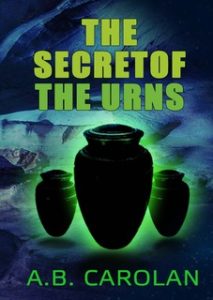Cancel culture: an author’s point of view…
Cancel culture is yet another current fad that smacks of censorship—in fact, just another but less common name for it in the publishing world, in fact. Like the anti-cultural appropriation movement, it inhibits free speech and an author’s right to self-expression. I know I’ll get into trouble for saying this, but go ahead and boycott me! I don’t sell many books anyway (probably more pirated than legal sales, because I favor ebooks), so, unlike that emcee of ABC’s “The Bachelor,” my livelihood won’t be affected. And what I have to say doesn’t compare with the fantastic lies and conspiracy theories that have created on both the far-right and far-left.
From cancelling Pepe Le Pew to George Washington, this so-called cancel culture begins in absurdity-land and ends in tyrannical censorship-Hades. You can’t change facts by trying to erase them! Yes, Pepe was a hilarious cad, a pursuer of women (and more a French stereotype), but he was a far cry from Donald J. Trump (have you already forgotten that “Access Hollywood” tape and his 16+ victims?). Yes, George Washington and a few other Founding Fathers of our great nation owned slaves—Blacks weren’t even counted as humans in the original Constitution! And Chris Harrison is correct: We are viewing our current culture with a lens that differs from the ones of 1776, 1945, or even from just a few years back.
Slavery was outlawed with Lincoln, it continued in Brazil until 1888, and the Brits exploited Blacks to clean up their country after World War II, but under those earlier lenses, all these were an accepted practices. Many other persons, not just the Founding Fathers, were racists. Theresa May, when she was Home Secretary (or was it PM?), tried to send them back, saying they weren’t British citizens, yet another example of the racism today’s UK inherited from its colonial past (remember, Southern plantations in the US were originally British!).
And poor Pepe! He’s a victim of LeBron James and other questionable censors who wrap themselves in the cloak of good intentions but should know better. (I’m not knocking him for being a Yankees fan who bought shares that make him a partial owner of the Red Sox.) But going after Pepe is just wrong! Next thing you know, Speedy Gonzales (Mexican stereotype?) and Bugs Bunny (“Hey, Mr. A-rab!”) will be targets. What about Daffy and Sylvester? Or Porky? (We make fun of them because of their speech impediments, you know.) Or the Big Bad Wolf? (That’s making fun of people with asthma or COPD, right?)
Censorship is alive and well in the US and elsewhere. In the US, it has a new name: cancel culture. But giving something a new name doesn’t make it right. It’s still wrong, and it has always played footsie with fascism. Admit it: No one would know how absurd that QAnon movement is if we cancelled those absurd spiels that led to its beginning in the first place. If only to help people stupid enough to believe it, we can’t cancel that from our national discourse.
A lot of cancel-culture folks scream, “But it was wrong!” about George, Pepe, and others they’ve aimed their guns of political correctness at. That “was” is an example of cultural transference, not cultural appropriation. What’s wrong now was not wrong then. It’s possible the cancelers haven’t studied history enough to realize that? In any case, consciously or otherwise, they’re indicting everyone back than for crimes they believe were committed, crimes defined by their beliefs at this much later time. Those “transgressors” lived within their cultural context; no one living now has the right to apply their cultural mores to them other than saying, “It was wrong but acceptable back then.” And there are unfair equivalences drawn in the process, which are often absurd; Slavery was terrible; the Nazis’ Final Solution was worse. Human beings were crucified, drawn and quartered, burned alive, drowned, electrocuted, hanged, and beheaded; Pepe just got laughs. Yes, human beings’ predilection for treating other human beings horribly is always wrong, but, to mimic Animal Farm, some evils are more evil than other evils.
As a kid, I had a treehouse. Unbeknownst to my parents, I had a few “banned books” up there, mostly paperbacks bought with lunch money saved when I skipped lunch (my schools’ cafeterias offered food I often found unpalatable—overcooked slop most of the time, worse than any college’s dining hall). I’d read those books there in that tree house or under covers at night with a flashlight (that was our cat’s favorite spot, so he hated my night reading—he couldn’t censor me either), along with sci-fi, adventure, and mystery novels. Everything from Tom Jones, Fanny Hill, and other racy books, to the Alan Quatermain books (talk about racist!—British racism seen through the author’s colonial lens) and Lady Chatterley’s Lover and Valley of the Dolls (the former more sad than racy, and the last might have been read in high school)—these are just a few memory strands pulled from my old brain (mostly dominated by sci-fi, mystery, and adventure stories, the latter now called thrillers).
Being a bit precocious or more nerdy than average, I also suffered from the local schoolboard’s determination that certain books weren’t appropriate for pre-high school readers (Lady was declared obscene in the US for a while, and Penguin had to win a big case in the UK even to publish it there), or even for high school readers. Many of the sci-fi and mystery novels I read were probably labeled that way—The Catcher in the Rye certainly was, as well as In Cold Blood.
Admittedly I read some of these classics out of curiosity. People would talk about them. In high school, our nerd herd continued that tradition. There was a paperback bookstore in our small town that sold all kinds of paperback books probably banned from the shelves of our public and school libraries. Where I grew up, the San Joaquin Valley has always been more conservative than progressive (those twits Kevin McCarthy and Devin Nunes are from there), so I imagine censorship still continues. (Maybe Bernie Sanders’s Our Revolution is banned now?) But I grew up with loving parents who respected and celebrated diversity, and I associated with many other kids who did the same, so my reading choices reflected that micro-cultural milieu.

Arguably all censorship is anti-democratic. But that’s not an absolute truism: Self-censorship is not. Despite my openness to a wide range of books, there are certain genres I tend to avoid—bodice rippers and other erotica, often better described as porn, come to mind (Lady stands up well against the Fifty Shades enterprise, by the way—D.H. Lawrence’s novel is more a sad and literary analysis of class differences in the UK). I suppose one can also argue that Fanny Hill is erotica or porn, but its raunchiness is on a par with the Brit’s long-running comedy series, “Benny Hill.” Genre labels aside, and going beyond my proclivities for self-censorship, I don’t think anyone has the right to tell me or anyone else what to read.

In particular, the only censorship I’ll support from the culture-cancelers for my own stories is self-censorship. My sci-fi, for example, and many books in that genre, have sexual situations that most conservative evangelicals and Catholics would love to censor: A.B. Carolan and I write about triads (the lead in the Secret of the Urns was born into one, for example), mixed marriages (Harry, the Black Jamaican, in the “Esther Brookstone Art Detective” series, is married to a white Cockney—take that, Theresa May!), and gay couples (two of the secondary leads in The Last Humans: A New Dawn are one, and Full Medical, my first novel, has a lesbian lead—she appears in all three novels in the “Clones & Mutants” series). If readers don’t like those cultural features, they don’t have to read the books!

Authors write about human cultures and history. They refuse to deny what is and what was and ponder on what will be. They don’t cancel culture, although they might help create it (Heinlein’s Stranger in a Strange Land was often called the hippies’ bible). They write about it, and, in their writing, inform their readers about what was, is, and will be through their stories. If readers don’t appreciate that, they’re free to self-censor. Just don’t trample on the rights of other people with more open minds, readers who are smart enough to realize that the cultural lens we view our world is constantly evolving, and it’s important to understand why. No one can understand the changes from culture A to culture B if all knowledge of A is erased. ‘Nough said.
***

Comments are always welcome.
Extreme “evergreen books.” The “Clones & Mutants” series contains my first novel, Full Medical (2006, but it has an ebook second edition), where the reader meets the children cloned from important political and religious figures as part of their medical plans. In #2, Evil Agenda, one clone and one mutant battle the evil Vladimir Kalinin (he appears in two series, including this one, and two bridge books). In #3, No Amber Waves of Grain, the clones and mutant battle against a Korean industrialist out for revenge, with (surprise!) Kalinin helping. This sci-fi thriller series will leave readers wondering if some of the portrayed events set in America’s near future (2054+) might already be occurring! Available wherever quality ebooks are sold.
Around the world and to the stars! IN LIBRIS LIBERTAS!
